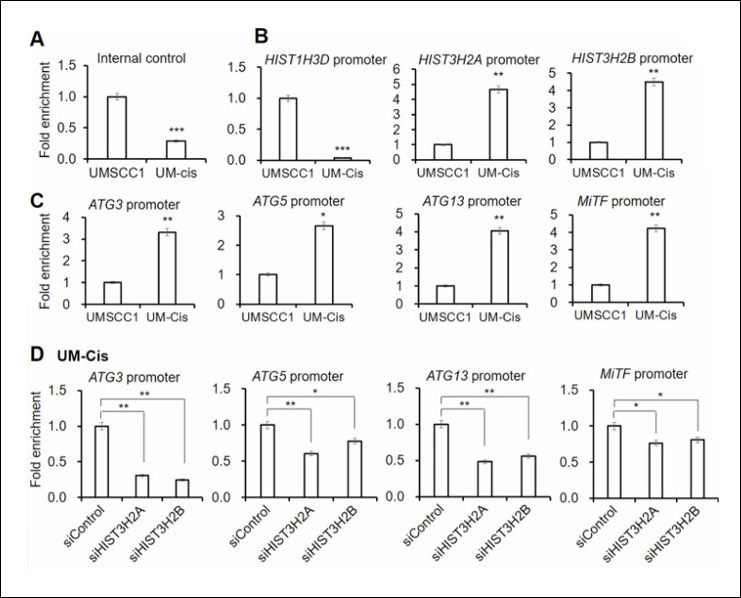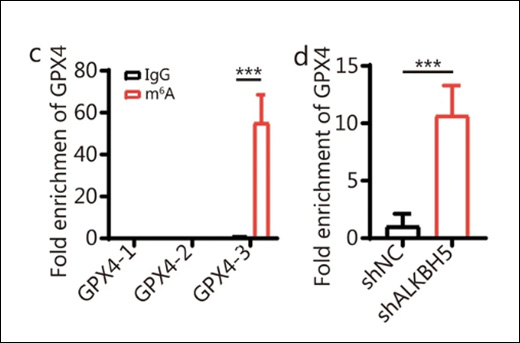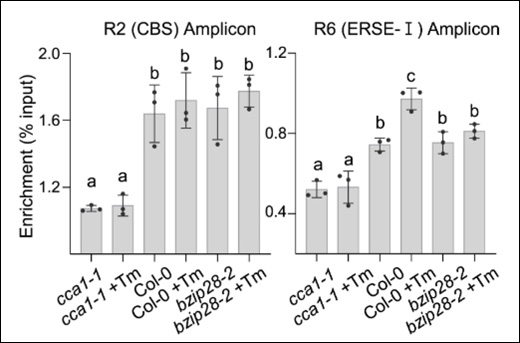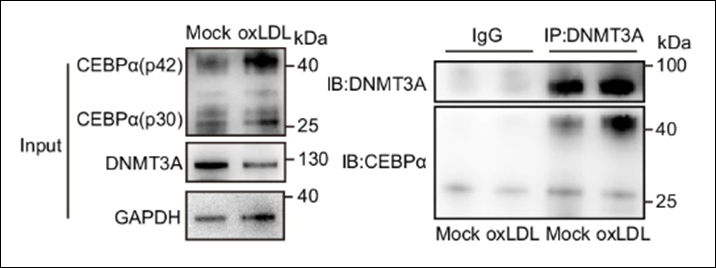Sun Y et. al. (October 2023). Evaluation and Mechanistic Study of Transgenerational Neurotoxicity in Zebrafish upon Life Cycle Exposure to Decabromodiphenyl Ethane (DBDPE) Environ Sci Technol.
The study investigates the impact of the flame retardant DBDPE on zebrafish across multiple generations. Zebrafish exposed to DBDPE showed transgenerational neurotoxic effects, affecting growth and social behavior in adult zebrafish. While maternal transfer of DBDPE was not observed, there were disruptions in the parental transfer of neurotransmitters to offspring. This research highlights the potential risks of DBDPE exposure to wild fish populations.
Products Used: MethylFlash Global DNA Methylation (5-mC) ELISA Easy Kit (Colorimetric)
Filipowicz G et. al. (October 2023). Mixed Connective Tissue Disease as Different Entity: Global Methylation Aspect Int J Mol Sci. 24(20)
The article investigates global DNA methylation in Mixed Connective Tissue Disease (MCTD) and its relation to other Autoimmune Connective Tissue Diseases (ACTDs). Although global DNA methylation was not significantly different between MCTD and healthy controls, it distinguished MCTD from systemic sclerosis (SSc) and systemic lupus erythematosus (SLE). The study suggests that DNA methylation levels vary among different ACTDs, emphasizing the need for further research into their diagnostic significance for MCTD.
Products Used: MethylFlash Global DNA Methylation (5-mC) ELISA Easy Kit (Colorimetric)
Seethy AA et. al. (October 2023). Alterations of the expression of TET2 and DNA 5-hmC predict poor prognosis in Myelodysplastic Neoplasms BMC Cancer. 23(1):1035.
The study investigates Myelodysplastic Neoplasms (MDS) and their connection to TET2, a DNA demethylator, in Indian patients. It finds that reduced TET2 expression and low 5-hydroxymethyl cytosine (5-hmC) levels are associated with advanced MDS and a poorer prognosis. This research sheds light on the epigenetic factors influencing MDS in the Indian population.
Products Used: MethylFlash Global DNA Hydroxymethylation (5-hmC) ELISA Easy Kit (Colorimetric)
Boovarahan SR et. al. (October 2023). DNA hypomethylation by fisetin preserves mitochondria functional genes and contributes to the protection of I/R rat heart Funct Integr Genomics. 23(4):325.
The study explores how fisetin, a natural compound, protects rat hearts from ischemia/reperfusion (I/R) injury by influencing DNA methylation and mitochondrial gene expression. Fisetin treatment reduces DNA hypermethylation, decreases infarct size, and improves cardiac recovery in I/R rats. Fisetin modulates genes related to DNA methylation and mitochondrial function, offering cardioprotection against I/R by improving cardiac function and gene expression.
Products Used: MethylFlash Methylated DNA Quantification Kit (Fluorometric)
Thakur V et. al. (October 2023). Role of Histone Deacetylase Inhibitor in Diabetic Painful Neuropathy Mol Neurobiol.
The article investigates using the histone deacetylase inhibitor FK228 (romidepsin) to treat diabetic painful neuropathy (DPN). DPN is characterized by neuroinflammatory changes, including the formation of neutrophil extracellular traps. FK228 treatment in diabetic mice significantly reduces pain and affects various markers related to nerve regeneration and inflammation, offering a potential alternative treatment for DPN.
Products Used: FitAmp Circulating DNA Quantification Kit
Yang B et. al. (October 2023). Re-epithelialization of Diabetic Skin and Mucosal Wounds is Rescued by Treatment with Epigenetic Inhibitors Diabetes.
The article investigates how diabetes disrupts wound healing through epigenetic changes. High glucose levels affect FOXO1 and MMP9 interactions, impairing wound re-epithelialization. The findings suggest epigenetic inhibitors can potentially improve wound healing in diabetics and address related complications.
Products Used: EpiQuik Nuclear Extraction Kit, Epigenase 5mC-Hydroxylase TET Activity/Inhibition Assay Kit (Fluorometric)
Wang C et. al. (October 2023). SETD4 inhibits prostate cancer development by promoting H3K27me3-mediated NUPR1 transcriptional repression and cell cycle arrest Cancer Lett. :216464.
The study investigates the role of SETD4, a methyltransferase, in prostate cancer (PCa). SETD4 is found to suppress PCa development by inhibiting NUPR1 transcription through H3K27me3, leading to Akt pathway inactivation and cell cycle arrest. These findings suggest SETD4 could be a potential target for PCa prognosis and treatment.
Products Used: EpiQuik Histone H3 Modification Multiplex Assay Kit (Colorimetric)
Wang N et. al. (October 2023). P300/CBP Regulates HIF-1 Dependent Sympathetic Activation and Hypertension by Intermittent Hypoxia Am J Respir Cell Mol Biol.
The article investigates how intermittent hypoxia (IH) in obstructive sleep apnea (OSA) leads to sympathetic activation and hypertension. It focuses on the role of lysine acetylation by p300/CBP in activating HIF-1 and subsequent gene transcription, NADPH oxidase activation, and autonomic dysfunction. The findings reveal that p300/CBP-mediated lysine acetylation of HIF-1α plays a significant role in IH-induced sympathetic activation and hypertension.
Products Used: EpiQuik HAT Activity/Inhibition Assay Kit
Wang QM et. al. (October 2023). Exosomal lncRNA NEAT1 inhibits NK cell activity to promote multiple myeloma cell immune escape via an EZH2/PBX1 axis Mol Cancer Res.
The study explores how exosomal long non-coding RNA NEAT1 contributes to immune evasion by multiple myeloma (MM) cells. MM-derived exosomes with NEAT1 inhibit natural killer (NK) cell activity by suppressing PBX1 via the EZH2/PBX1 axis, facilitating MM cell immune escape. Silencing NEAT1 in exosomes reduces tumor growth and boosts NK cell function. This research presents a promising therapeutic strategy for multiple myeloma.
Products Used: EpiQuik Chromatin Immunoprecipitation (ChIP) Kit
Zhu Y et. al. (October 2023). N6-methyladenosine-modified oncofetal lncRNA MIR4435-2HG contributed to stemness features of hepatocellular carcinoma cells by regulating rRNA 2'-O methylation Cell Mol Biol Lett. 28(1):89.
This article uncovers the role of the oncofetal lncRNA MIR4435-2HG in hepatocellular carcinoma (HCC). MIR4435-2HG, regulated by N6-methyladenosine modification, enhances stem-cell properties in HCC cells and promotes tumorigenesis. It interacts with NOP58, affecting rRNA 2'-O methylation and oncogene translation. These findings shed light on the fetal-like reprogramming of cancer cells in HCC.
Products Used: N6-methyladenosine (m6A) Polyclonal Antibody
Wang W et. al. (October 2023). Silencing METTL14 alleviates liver injury in non-alcoholic fatty liver disease by regulating mitochondrial homeostasis Biomol Biomed.
The article discusses how silencing METTL14 can alleviate liver injury in non-alcoholic fatty liver disease (NAFLD) by regulating mitochondrial function. METTL14 influences miR-34a-5p, which in turn affects SIDT2, contributing to mitochondrial homeostasis in NAFLD. The findings provide insights into potential therapeutic targets for NAFLD.
Products Used: EpiQuik m6A RNA Methylation Quantification Kit (Colorimetric)
Li X et. al. (October 2023). METTL3-regulated m6A modification impairs the decidualization of endometrial stromal cells by regulating YTHDF2-mediated degradation of FOXO1 mRNA in endometriosis-related infertility Reprod Biol Endocrinol. 21(1):99.
The study explores how m6A RNA modification, controlled by METTL3, affects endometriosis-related infertility. Reduced m6A and METTL3 levels impair decidualization of endometrial stromal cells and impact embryo implantation. METTL3 regulates FOXO1 mRNA degradation through YTHDF2. These findings provide insights for potential therapies in addressing infertility in women with endometriosis.
Products Used: EpiQuik m6A RNA Methylation Quantification Kit (Colorimetric)
Yang P et. al. (October 2023). m6A methyltransferase METTL3 contributes to sympathetic hyperactivity post-MI via promoting TRAF6-dependent mitochondrial ROS production Free Radic Biol Med.
The study explores how METTL3, an m6A methyltransferase, contributes to increased sympathetic activity after a heart attack. Inhibiting METTL3 in microglia decreases sympathetic activity and reduces ventricular arrhythmias by lowering mitochondrial reactive oxygen species through the TRAF6/ECSIT pathway in the brain's paraventricular nucleus, improving cardiac function post-heart attack.
Products Used: EpiQuik m6A RNA Methylation Quantification Kit (Colorimetric)
Liu Z et. al. (November 2023). N6-methyladenosine methyltransferase METTL3 modulates the cell cycle of granulosa cells via CCND1 and AURKB in Haimen goats FASEB J. 37(11):e23273.
The study explores the role of METTL3 and m6A in granulosa cells during oocyte maturation in Haimen goats. METTL3 influences the cell cycle, apoptosis, proliferation, and hormone secretion by regulating AURKB mRNA degradation through m6A-YTHDF2 and AURKB transcription via the CCND1-RB-E2F1 pathway. This research enhances our understanding of RNA methylation in oocyte maturation through granulosa cells in these goats.
Products Used: EpiQuik m6A RNA Methylation Quantification Kit (Colorimetric)




 Cart (0)
Cart (0)













